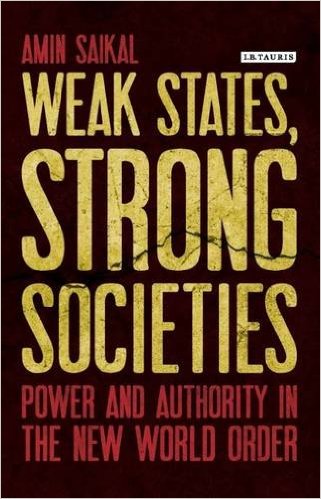 WEAK STATES, STRONG SOCIETIES
WEAK STATES, STRONG SOCIETIES
Power and Authority in the New World Order
Amin Saikal (Ed)
Since the disintegration of the Soviet Union and the end of the Cold War, the previously well-established organisation of world politics has been thrown into disarray. While during the Cold War, the bipolarity of the world gave other powers a defined str·ucture within which to vie for power. influence and wealth, the current global political landscape has been transformed by a diffusion of power: As a result, the world has seen the rise of sub-national or quasi-/non-state actors, such as Hezbollah, ai-Qaeda and the movement that calls itself
Islamic State, or ISIS.
These dramatic geopolitical shifts have heavily impacted state-society relationships, power and authority in the international system. Weak States, Strong Societies analyses the effect of these developments on the new world order, arguing that the framework of'weak state, strong society' appears even more applicable to the contemporary global landscape than it did during the Cold War. Focusing on a range of regional contexts, the book explores what constitutes a weak or strong state. Essential reading for specialists in politics and international relations.
'A sober and balanced review of the topic[ ... ] The distinguished theoretical and
area specialists of this volume provide discerning insights into the transitioning
roles of state power and social movements, the impact of civil society, and the
effect of external and globalised penetration. They compellingly demonstrate
that the evolving relationships entail, in addition to portentous political
consequences, a subverting of the dichotomised and unitary assumptions that
have often conditioned both scholarly and policy discussions.'
James Piscatori, Durham University